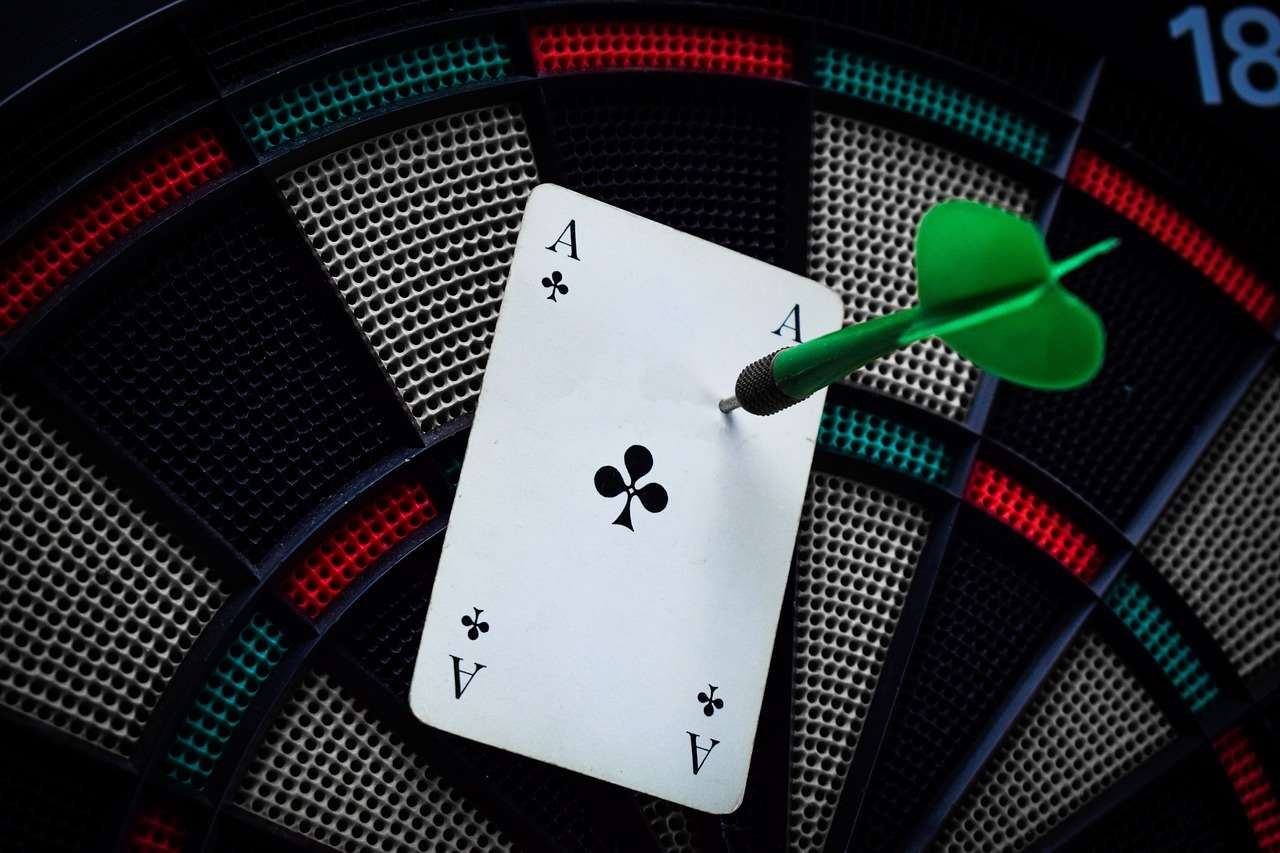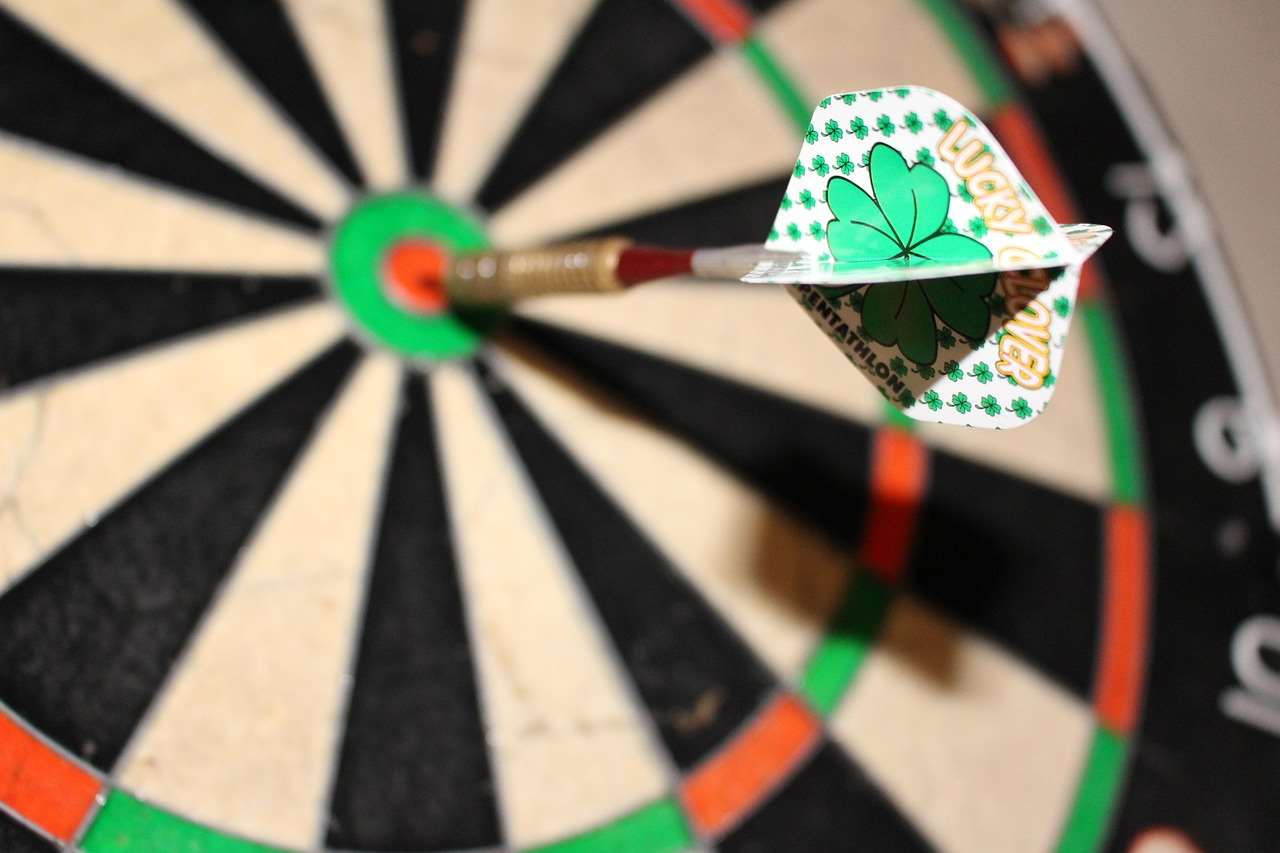Unlocking consistent profits in sports betting often boils down to finding an edge, and that’s precisely what value betting on head to head matchups offers: identifying situations where the odds offered by bookmakers underestimate a particular competitor’s true probability of winning. This article will delve into the core principles of value betting, explore proven strategies for identifying valuable head-to-head opportunities, and provide actionable tips to boost your betting success.
⚠️ Still Using Pen & Paper (or a Chalkboard)?! ⚠️
Step into the future! The Dart Counter App handles all the scoring, suggests checkouts, and tracks your stats automatically. It's easier than you think!
Try the Smart Dart Counter App FREE!Ready for an upgrade? Click above!
Understanding Value Betting On Head To Head
At its core, value betting on head to head involves identifying situations where you believe the implied probability of a team or player winning, based on the odds offered by a sportsbook, is lower than your own assessment of their chances. In simpler terms, you’re looking for odds that are “too good” to be true. This doesn’t mean betting on longshots blindly; it means conducting thorough research and analysis to form your own informed opinion.
For example, let’s say you’re analyzing a tennis match between Player A and Player B. The bookmaker has Player A at odds of 2.0 (implying a 50% chance of winning) and Player B also at 2.0. However, after considering factors like recent form, head-to-head record, playing surface, and injuries, you estimate Player A’s true probability of winning to be closer to 60%. In this scenario, betting on Player A at odds of 2.0 represents a value bet.

Implied Probability and How to Calculate It
Understanding implied probability is crucial for value betting on head to head. Implied probability is the percentage chance of an event occurring as suggested by the bookmaker’s odds. You can calculate it using the following formula:
Implied Probability = (1 / Decimal Odds) * 100
So, in the example above, the implied probability for each player is (1/2.0) * 100 = 50%. To identify a value bet, you need to determine whether your perceived probability exceeds the implied probability.
Strategies for Identifying Value Bets in Head To Head Matchups
Finding value bets isn’t about luck; it requires a systematic approach. Here are some effective strategies to consider:
- Thorough Research: Dig deep into relevant statistics, including recent form, head-to-head records, home/away advantage, injury reports, and any other factors that could influence the outcome.
- Specialization: Focus on a specific sport or league where you have a deep understanding. This allows you to develop a more accurate assessment of probabilities.
- Utilizing Statistical Models: Develop or utilize existing statistical models to predict match outcomes. These models can provide a more objective and data-driven assessment.
- Monitoring Line Movements: Pay attention to how odds are changing. Significant line movements can indicate new information or insights that you might have missed.
- Comparing Odds Across Bookmakers: Different bookmakers may offer slightly different odds. Shopping around for the best price is essential for maximizing your potential profits. This process is known as line shopping.
Remember to always factor in variance. Even with a positive expected value, short-term results can be unpredictable.
Key Factors to Analyze in Head To Head Betting
The specific factors you need to analyze will vary depending on the sport. However, some common considerations include:
- Recent Form: How have the competitors performed in their recent matches? Are they on a winning streak or struggling?
- Head-to-Head Record: What is the historical record between the two competitors? Does one have a clear advantage?
- Home/Away Advantage: Does playing at home provide a significant advantage in this sport?
- Injuries and Suspensions: Are any key players injured or suspended? This can significantly impact a team’s chances of winning.
- Motivation: What is at stake in the match? Are the competitors highly motivated to win?
- Weather Conditions: In some sports, like outdoor sports, weather conditions can play a significant role.

Advanced Techniques for Value Betting On Head To Head
Once you have a solid grasp of the fundamentals, you can explore more advanced techniques to further refine your value betting on head to head strategy:
- Regression Analysis: Use regression analysis to identify factors that are most strongly correlated with winning.
- Poisson Distribution: Apply the Poisson distribution to predict the number of goals scored in a soccer match.
- Elo Ratings: Utilize Elo ratings (or similar rating systems) to assess the relative strength of competitors.
These techniques require a deeper understanding of statistics and mathematics, but they can provide a significant edge in identifying value bets. Also, consider how How To Start A Darts League might offer additional insights into player performance.
Managing Risk and Bankroll
No matter how skilled you are at identifying value bets, it’s essential to manage your risk and bankroll effectively. Here are some key principles:
- Set a Budget: Determine how much money you’re willing to risk on sports betting and stick to that budget.
- Use a Staking Plan: Implement a staking plan, such as the Kelly Criterion or a fixed percentage of your bankroll, to determine how much to bet on each individual match.
- Avoid Chasing Losses: Don’t try to recoup losses by placing larger bets. This can lead to a downward spiral.
- Keep Records: Track your bets and analyze your results. This will help you identify areas where you can improve.
Effective bankroll management is just as important as finding value bets. Even with a positive expected value, you can still experience losing streaks.

Psychological Aspects of Value Betting
Betting is not just about numbers and analysis; it also involves psychology. It’s crucial to understand your own biases and tendencies to avoid making emotional decisions that can negatively impact your results. Overconfidence, for example, can lead to placing larger bets on selections you subjectively feel strongly about without properly evaluating the value.
Another common psychological trap is recency bias, where you give undue weight to recent events or results. For instance, a team’s unexpected loss in their last game might unfairly lower your assessment of their overall strength. It’s vital to maintain objectivity and base your judgments on a broader range of data.
Furthermore, learning to accept losses as a natural part of the process is essential. Every bettor, even the most successful ones, experiences losing streaks. The key is to stick to your strategy, manage your bankroll wisely, and avoid letting emotions cloud your judgment. Remember to use data to improve your chances in Promoting Local Darts which could also help enhance your strategy.

Examples of Value Bets in Different Sports
To further illustrate the concept of value betting on head to head, let’s consider examples across various sports:
- Basketball: A team is playing a home game against a weaker opponent. Public perception might be slightly biased due to a recent away loss, leading to slightly inflated odds. If your analysis indicates that the home team’s true probability of winning is higher than the implied probability of the available odds, this presents a value bet.
- Tennis: A player with a strong serve is facing an opponent who struggles against powerful serves. The odds might not fully reflect the server’s advantage, particularly on a fast court surface. A detailed analysis of both players’ strengths and weaknesses can reveal value in backing the server at the given odds.
- American Football: A team’s starting quarterback is returning from injury. While the public might be hesitant to back them immediately, your analysis of their pre-injury performance, combined with information on the opposing team’s defensive vulnerabilities, could suggest that they are undervalued by the bookmakers.
- Darts: Player A has a higher 3-dart average over the past 10 games, but Player B is slightly favored. Careful consideration of Player A’s consistency and mental fortitude might indicate a strong opportunity. Darts Culture And Community Guide can assist in better understanding the sport.
These examples highlight that identifying value requires a thorough understanding of the specific sport, relevant statistics, and any factors that might be overlooked by the general public. Remember, it’s about having a well-reasoned opinion that differs from the prevailing market view.

The Future of Value Betting
As sports betting becomes increasingly sophisticated, the landscape of value betting on head to head is constantly evolving. The rise of advanced analytics and machine learning is making it more challenging to find significant edges, as bookmakers are also employing these tools to refine their odds.
However, this doesn’t mean that value betting is becoming obsolete. It simply requires a greater level of dedication, sophistication, and access to data. Bettors who are willing to invest the time and effort to develop advanced models, analyze vast amounts of data, and stay ahead of the curve can still find profitable opportunities. Specialization and niche sports can offer fertile ground for value finding, where the market might be less efficient.
Furthermore, the ongoing globalization of sports and the increasing availability of data on even the most obscure leagues are creating new avenues for value betting. As long as there are discrepancies between perceived probabilities and actual probabilities, there will always be opportunities for astute bettors to find an edge.
Conclusion
Value betting on head to head is a proven strategy for achieving long-term profitability in sports betting. By understanding the core principles, developing effective strategies, managing risk wisely, and remaining disciplined, you can increase your chances of success. It requires dedication, research, and a willingness to challenge conventional wisdom, but the rewards can be significant.
Remember to focus on specialization, utilize statistical models, monitor line movements, and compare odds across multiple bookmakers. Embrace the psychological aspects of betting, manage your bankroll effectively, and continuously learn and adapt to the evolving landscape. Start today by researching upcoming head-to-head matchups and identifying potential value bets. Good luck!
Hi, I’m Dieter, and I created Dartcounter (Dartcounterapp.com). My motivation wasn’t being a darts expert – quite the opposite! When I first started playing, I loved the game but found keeping accurate scores and tracking stats difficult and distracting.
I figured I couldn’t be the only one struggling with this. So, I decided to build a solution: an easy-to-use application that everyone, no matter their experience level, could use to manage scoring effortlessly.
My goal for Dartcounter was simple: let the app handle the numbers – the scoring, the averages, the stats, even checkout suggestions – so players could focus purely on their throw and enjoying the game. It began as a way to solve my own beginner’s problem, and I’m thrilled it has grown into a helpful tool for the wider darts community.